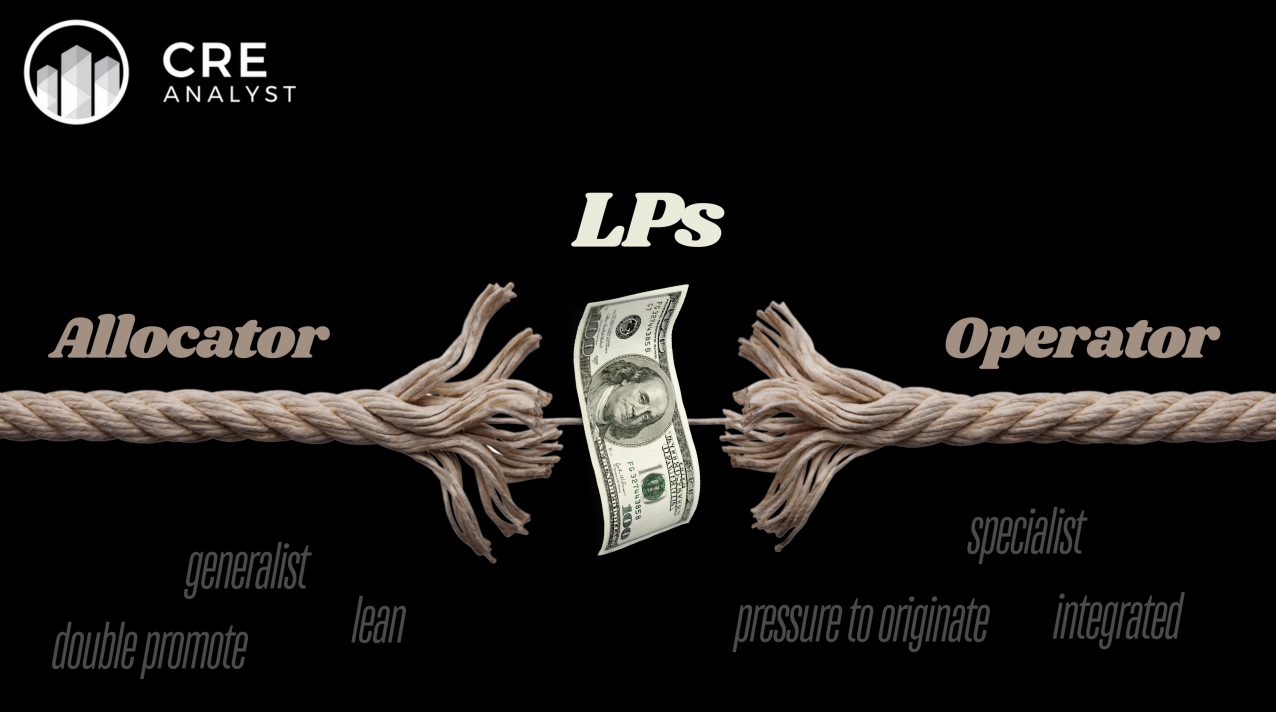
Allocator vs. operator models
Dueling perspectives
Gloves off
---- Allocator argument ----
"If all you have is a hammer, everything looks like a nail."
Real estate is a capital game. The winners are the ones who know how to deploy capital at scale, with discipline, and at the right time in the cycle. We don’t waste our time swinging hammers or managing construction sites—we focus on where money will make money. Allocators have the flexibility to shift capital across geographies, asset classes, and risk profiles, always positioning ahead of the market. We leverage macro trends early and benefit from competition between operators.
Operators get stuck in the weeds—too focused on property management, local issues, and tenant headaches. There's nothing worse than staying in your lane on the road to nowhere. We move like capital markets athletes, shifting from logistics to data centers to housing, riding secular tailwinds.
People criticize the 'double promote,' but this is an apples-to-oranges comparison. We only pay promotes when we hit success hurdles as opposed to loading up fees that misalign interests, and aren't misaligned with the weight of excess fees and platform pressures.
---- Operator argument ----
"You're a jack of all trades but a master of none."
The allocator model is great—if you like paying for other people’s expertise while sitting in an office playing spreadsheets. We build, own, and operate our assets because that’s where real value is created. We control our own destiny.
The problem with allocators is they spread themselves too thin, betting on sponsors instead of knowing the business inside and out. Real estate isn’t just about writing checks; it’s about execution.
And let’s talk about that ‘double promote.’ Why would I pay a second layer of fees to someone just for capital when I can source my own? Operators keep control and avoid giving away upside. We don't chase shiny objects.
Allocators might make money in a bull market, but they’re tourists. When the cycle turns, we’re still here, running great buildings, serving residents, and creating long-term value. The allocator game is transactional. The operator game is generational.
PS - The hypothetical arguments above in no way reflect comments or opinions of the attached sample platforms, which were selected because they are very well-respected platforms with strong track records.

COMMENTS